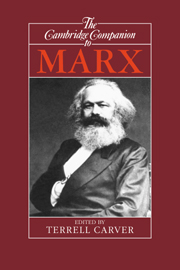11 - Logic
Dialectic and contradiction
Published online by Cambridge University Press: 28 May 2006
Summary
Social theorists tend to be remembered for their conclusions rather than the way in which they conducted their inquiries, but if we neglect to study the latter it is quite likely that we will misunderstand or misconstrue the former. Marx complained that the method he employed in Capital was “little understood” and although he attempted to clarify the nature of what he called his “dialectic” the logic of his scientific endeavor has continued to be a contentious subject (Marx, 1977: 99-103). To improve our understanding of his method and its significance in social science, a number of questions need to be addressed. What did Marx mean by dialectic? What did it look like in his work? What was the precise relationship between Marx's dialectical method and formal logic? And finally, what is the relationship between Marx's dialectic and Marxist theory?
The most direct way to get to the heart of the first three questions is to examine Marx's use of the concept of contradiction, which played a role of vital analytical significance in his work, resulting in well-known formulations such as the “contradictions of capitalism” and “class contradictions.”Dialectical philosophers claim that contradictions exist in reality and that the most appropriate way to understand the movement of that reality is to study the development of those contradictions. Formal logic denies that contradictions exist in reality, and where they are seen to exist in thought, they have to be expunged in order to arrive at the truth. This is embodied in the principle of noncontradiction, in which the presence of a contradiction in a statement or proposition invalidates its claim to truth. On the face of it, therefore, the claims of dialectical and formal logic appear to be incommensurable, and dialogue between the two systems appears to be impossible.
- Type
- Chapter
- Information
- The Cambridge Companion to Marx , pp. 275 - 295Publisher: Cambridge University PressPrint publication year: 1991
- 6
- Cited by



